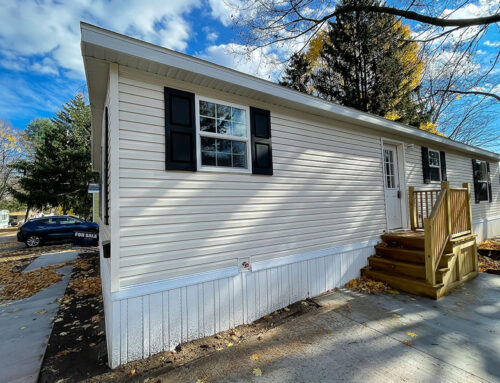I’ve bought and sold a lot of properties in New Jersey over the years, and the NJ real estate disclosure form has been featured in every single transaction. So, when a young investor friend of mine told me he never fills out a disclosure form unless it’s specifically requested by a buyer, I was surprised, to say the least. It’s true that New Jersey doesn’t require you to fill out a disclosure form for every real estate transaction, however, it’s still a very good idea to do so, for numerous reasons. Let’s discuss why the NJ real estate disclosure form is key to an honest transaction by investors.
What To Include on an NJ Real Estate Disclosure Form
First, you should understand what exactly you’re required to disclose when you sell a home in NJ. Though you don’t need to fill out a specific form, you do have a legal obligation to disclose any known defects that could affect a buyer’s decision to purchase your property, even if they’re hidden. If you omit any of this information, and a defect causes the buyer to incur losses, or even makes the property unlivable, then you could face serious legal action.
Many standard sale contracts will include representations or promises you’re making about the property, which means you need to disclose any information that impacts those promises. Some examples of promises you make in a standard contract include:
- The property, including the appliances and systems servicing the property, is in good working order. (Note: This doesn’t mean that everything needs to be brand new and working perfectly, just functioning at a satisfactory level.)
- The property meets current zoning ordinances. If you’re selling a single-family home for private residence, it should be zoned as such.
- If you’ve made any additions to the home, you need to state what they were in the contract and promise that you received the proper approvals and permits to do so. If you, for example, add a bathroom to the property without receiving the proper permits, and this is discovered by the municipality at some later date (say, because they conduct a property tax assessment), then the buyer could be on the hook for back taxes or even legal action.
Another important thing to understand about disclosures is that selling a property “as-is” doesn’t remove your legal obligation to tell the buyer about defects. In NJ, selling a property as-is just means that you’re informing the buyer that you don’t plan to make any further repairs or renovations to the property, so the condition of the property isn’t going to improve before closing. However, if the buyer discovers an undisclosed defect on the property after they’ve signed the contract, they can still back out of the deal.
As an investor, the “as-is” rule mostly affects you when you’re purchasing a property, not selling it. You’ll frequently purchase distressed NJ homes in need of repairs and renovations, which is how you’re able to flip them for a profit. However, if you discover a major undisclosed issue during your renovation, for example, an old underground oil tank, it could significantly impact the timeline of your flip and your potential profits. So, it’s important to know that you have legal recourse to back out of the contract in this type of situation.
Why the NJ Real Estate Disclosure Form Is Key to an Honest Transaction by Investors
You’re only legally obligated to disclose issues that impact the health, safety, and livability of your property, as well as anything that’s promised in your sale contract. In addition, if a buyer (or their agent) asks you a direct question about a problem with the property, you’re legally required to answer it honestly and in full. That doesn’t mean you should keep all other known defects to yourself just to ensure a speedy sale, though.
For one, you may not be able to objectively judge whether an issue really impacts the safety and livability of your property. So, you could omit information about a defect you consider minor—say, a recent cockroach infestation—but a judge in the future could hold you liable for any damages incurred by the buyer as a result of that defect.
In addition, full disclosure ensures an honest real estate transaction, which your buyers will appreciate. Just because you tell a buyer about an issue with your property doesn’t mean they’re going to back out of the deal or try to negotiate for a lower price—often, they’ll just request that you resolve the problem before they move in. You want your buyers to walk away from the sale as happy as possible, so they’ll recommend your services to all their friends. By proactively disclosing all the issues with your properties at every transaction, you’ll establish a reputation as a real estate investor with integrity.
More Help with the NJ Real Estate Disclosure Form
Some real estate investors will do anything to make a sale, including omitting defects and issues from the NJ real estate disclosure form. My young friend was mentored by that kind of unscrupulous investor, and so he hadn’t considered how this business practice could negatively affect his reputation and expose him to legal liability. That’s why I think it’s so important for new investors to work with an honest and principled real estate mentor with real hands-on experience in the field, like a HomeVestors® Development Agent.
If you join HomeVestors® as an independently owned and operated franchise, you’ll get one-on-one advice and mentorship from a local investor who knows the ins and outs of the NJ real estate market. Plus, you’ll gain access to innovative software tools to help you find financing for qualifying purchases and repairs, list and market your properties, communicate with buyers, and more.
Contact HomeVestors® today to learn how a Development Agent can help you navigate the NJ real estate disclosure form.
Each franchise office is independently owned and operated.
Contact
"*" indicates required fields





